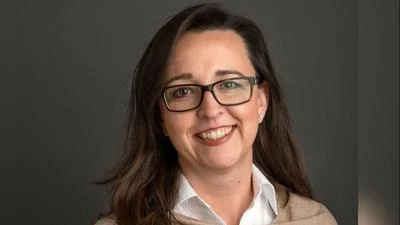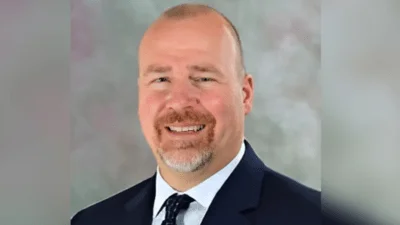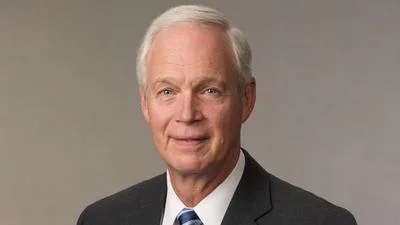Gov. Tony Evers | Gov. Tony Evers Official U.S. House headshot
Gov. Tony Evers | Gov. Tony Evers Official U.S. House headshot
MADISON — Gov. Evers today wrapped up June Dairy Month by highlighting his recent visits with dairy farmers, processors, and producers, as well as local community and agricultural industry leaders across the state. Gov. Evers spent the month celebrating America’s Dairyland and June Dairy Month, the strength of the state’s dairy industry, and the Evers Administration’s efforts and investments in the dairy and agricultural industries, including the governor’s proposed 2023-25 biennial budget initiatives.
“Here in America’s Dairyland, dairy is part of our DNA as Wisconsinites—it’s part of our heritage and our way of life, and it’s also an essential part of our state’s economy and our future,” said Gov. Evers. “It’s been great to visit with farmers and producers across our state—from the Mars Cheese Castle in Kenosha to Organic Valley’s creamery in Chaseburg and everywhere in between—to celebrate this critical industry and Wisconsin’s farmers, families, and our rural communities. Nobody quite does dairy like we do here in Wisconsin, and we will continue to support this industry to ensure its growth and success for future generations.”
The governor previously shared a video message with Wisconsinites to help kick off Dairy Month. The governor’s 2023 Dairy Month video message is available here.
Wisconsin’s dairy industry is a significant part of the state’s cultural heritage and a central driver of the state’s economic future. According to the Wisconsin Department of Agriculture, Trade and Consumer Protection (DATCP), Wisconsin is home to nearly 6,000 dairy farms—more than any other state—and the dairy industry contributes $45.6 billion annually to Wisconsin’s economy.
To kick off his month-long dairy tour, on Thursday, June 8, Gov. Evers visited Fromagination, located on the Capitol Square in Madison, where he met with the owners and workers at the store. While there, the governor participated in a cheese tasting and trivia about Wisconsin’s dairy industry. Fromagination is an LGBTQ-owned business and is also one of ten cheese store destinations on the Great Wisconsin Cheese Trail. Photos from the tour are available here, here, and here.
On Wednesday, June 14, Gov. Evers started the day with a tour of the Mars Cheese Castle in Kenosha. The Mars Cheese Castle has been a family-owned Wisconsin staple since it first opened in 1947 and has a specialty market offering more than 700 cheeses, wines, and items from Wisconsin and around the world, as well as an in-house bakery, restaurant, and pub. Photos from the tour are available here, here, and here.
Then, the governor traveled to Monroe and toured Chalet Cheese, which is the only cheesemaking facility in the United States that makes Limburger cheese. Chalet Cheese previously received Dairy Processor Grants from the Wisconsin Department of Agriculture, Trade and Consumer Protection (DATCP) in 2019, 2021, and 2023, and used the funding they received to update their production practices and facility and create a marketing development plan for their operation. Photos from the tour are available here and here.
For his last stop of the day, the governor toured Arena Cheese in Arena, which received a Dairy Processor Grant from DATCP in 2020 for the installation of a reverse osmosis system to concentrate lactose permeate coming from an ultrafiltration unit that separates protein from lactose, reducing the cost of disposal and increasing the value of the disposal product. Photos from the tour are available here and here.
On Wednesday, June 21, the governor, together with State Sen. Brad Pfaff (D-Onalaska), State Rep. Jenna Jacobson (D-Oregon), State Rep. Travis Tranel (R-Cuba City), State Rep. Loren Oldenburg (R-Viroqua), and State. Rep Nancy VanderMeer (R-Tomah) visited Hamburg Hills Farm in Stoddard, a family-owned, organic dairy farm, to sign Senate Bill 247, now 2023 Wisconsin Act 13. Act 13 expands the Local Roads Improvement Program to include agricultural road improvement projects by creating the Agricultural Roads Improvement Program. The move by the governor to help support local agricultural road improvement projects statewide comes as the day prior, he enacted 2023 Wisconsin Act 12 to provide a historic increase in state support to local communities across Wisconsin. A photo from the bill signing in Stoddard is available here and here.
On Monday, June 26, Gov. Evers visited Fischerdale Holsteins in Verona, where he met with the Sarbacker family who owns the farm, received a tour of their facilities, and learned about the farm’s daily operations. The governor was joined by State Sen. Dianne Hesselbein (D-Middleton) and State Rep. Mike Bare (D-Verona). Photos of the governor’s visit are available here and here.
To conclude his tour, the governor then visited Organic Valley’s Chaseburg Creamery in Chaseburg where he was joined by DATCP Secretary Randy Romanski. During their visit, they met with Organic Valley leadership, employees, and farmer-members of the cooperative, learned about the butter-making process, and sampled some of Organic Valley’s award-winning butter. The governor and secretary were also joined by State Sen. Pfaff and State Rep. Oldenburg. Photos of the event are available here and here.
Since taking office, Gov. Evers has prioritized investing in the long-term success of Wisconsin’s agricultural industry, and the governor was recently awarded a 2023 Cheese Champion award by the Wisconsin Cheese Makers Association for his efforts to support Wisconsin’s dairy industry. A photo from the event is available here.
To date, Gov. Evers has directed $100 million to support Wisconsin farmers in all 72 counties through the Wisconsin Farm Support Program. In addition, last month, the governor and DATCP announced 21 recipients of a 2023 Dairy Processor Grant. This program aims to foster innovation, improve profitability, and sustain the long-term viability of Wisconsin’s dairy processing facilities. As part of the 2021-23 biennial budget, Gov. Evers increased the annual funding for dairy processor grants from $200,000 to $400,000 to provide additional support to Wisconsin’s dairy industry. Gov. Evers has also signed legislation and supported initiatives that advance the state’s agricultural export program, including funding specifically targeted at promoting dairy exports, and worked to help bolster the long-term viability of the dairy industry by investing in programs and projects like the Dairy Innovation Hub and the brand-new Center for Dairy Research at the University of Wisconsin-Madison.
Building upon the work of the governor’s previous budgets and efforts during his time in office, Gov. Evers’ 2023-25 biennial budget proposed an additional $1.6 million in funding for the Dairy Processor Grant Program and significant investments in other areas that impact daily life for dairy and other agricultural producers, including investments to:
• Provide a historic investment of $750 million for the Broadband Expansion Grant Program to expand access to high-speed internet, including in Wisconsin’s most rural communities;
• Build on the positive momentum created by the Evers Administration to fix more than 5,800 miles of roads and nearly 1,600 bridges throughout the state by providing the highest level of funding ever for general transportation aids, which go directly toward helping local counties and local communities repair and maintain local roads;
• Continue the popular Food Security Initiative Grant Program and increase total funding to $15 million annually to connect local nonprofit food assistance programs with local food production companies, like cheesemakers, meat processors, and vegetable growers;
• Provide more than $2.8 million for the Wisconsin Initiative for Agricultural Exports to help build Wisconsin’s agricultural brand in international markets and increase agricultural exports;
• Provide $200,000 to continue farmer mental health assistance programming, including tele-counseling services and counseling vouchers to be redeemed by farmers and their families, among other services;
• Provide an additional $1.6 million to increase the available funding for the Meat Processor Grant Program;
• Make the Meat Talent Development Grant Program permanent with a more than $1.2 million investment to support meat industry workforce development needs by providing funds for curriculum development and tuition assistance to individuals pursuing meat processing programming at Wisconsin universities, colleges, and technical schools;
• Provide $200,000 for grants to help farms hire business consultants to examine their farm business plans;
• Create the Value-Added Agriculture Grant program with $800,000 to help farmers expand agricultural practices that produce value-added products;
• Create the Farm to Fork Grant Program with $800,000;
• Continue the Buy Local, Buy Wisconsin Grant Program and increase funding for the Something Special from Wisconsin Program to promote local food products;
• Convert four project positions that were approved in the 2021-23 biennial budget to permanent positions for the meat inspection program at DATCP and provide more than $950,000 for supplies and services related to meat inspections;
• Provide $167,500 and one agricultural economist position at DATCP; and
• Provide $4 million Tribal gaming revenues for a Tribal Food Box program to support producers and those requiring sustainable food in Tribal Nations.
Last month, the Joint Finance Committee voted to adopt several budget proposals based on recommendations made by the governor, including providing $1.5 million annually on a one-time basis to support food insecure Tribal elders, an additional $300,000 annually for the Dairy Processor Grant Program on a one-time basis, bringing funding for the program to $500,000 each year, as well as investing $1 million annually for the Wisconsin Initiative for Agricultural Exports and providing additional funding to support farmer mental health assistance programming at DATCP.
An online version of this release is available here.
Original source can be found here.






 Alerts Sign-up
Alerts Sign-up